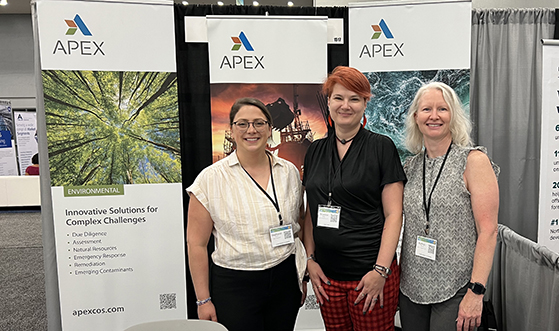Vision
To be the industry’s most accomplished and trusted mid-market engineering and consulting firm, where clients receive the broad expertise and capacity of larger firms, but with the agility, efficiency, and customer care of smaller firms.
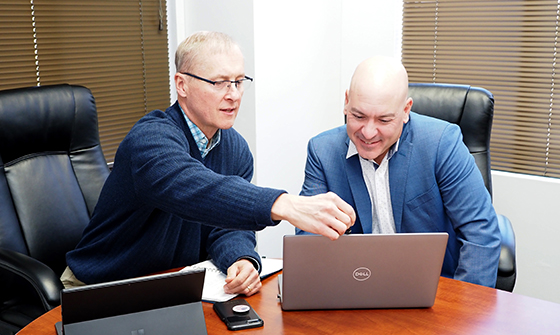
At Apex, our core values in-SPIRE us to be and do our best.
Safety
We are committed to living safely, working safely, and inspiring those around us to do the same.
People
We invest in our people, foster a collaborative and inclusive environment, and recognize that diversity makes us stronger.
Impact
We are passionate about building a better tomorrow for our employees, clients, communities, and the environment.
Responsibility
We hold ourselves and one another accountable to the highest professional, ethical, and business standards and own what we do.
Excellence
We cultivate excellence through creativity, grit, innovation, and teamwork.

Culture
Innovative, responsive, and accountable are just a few of the ways our clients describe us. In short, Apex Companies is a mid-sized firm with an extensive national footprint and a broad range of engineering, environmental, consulting, and field services capabilities. Our unwavering commitment to keep our culture healthy, vibrant, and agile includes balancing discipline and flexibility to maximize our effectiveness while minimizing bureaucracy. We’ve achieved a leadership position in the mid-market by taking ownership of what we do, being accountable to our clients, and always striving to do and be our best. Our business and our brand flourishes because of the competencies, capacity, and commitment of our people, assuring our clients a true partnership that delivers impressive results with unquestionable integrity.
Our People
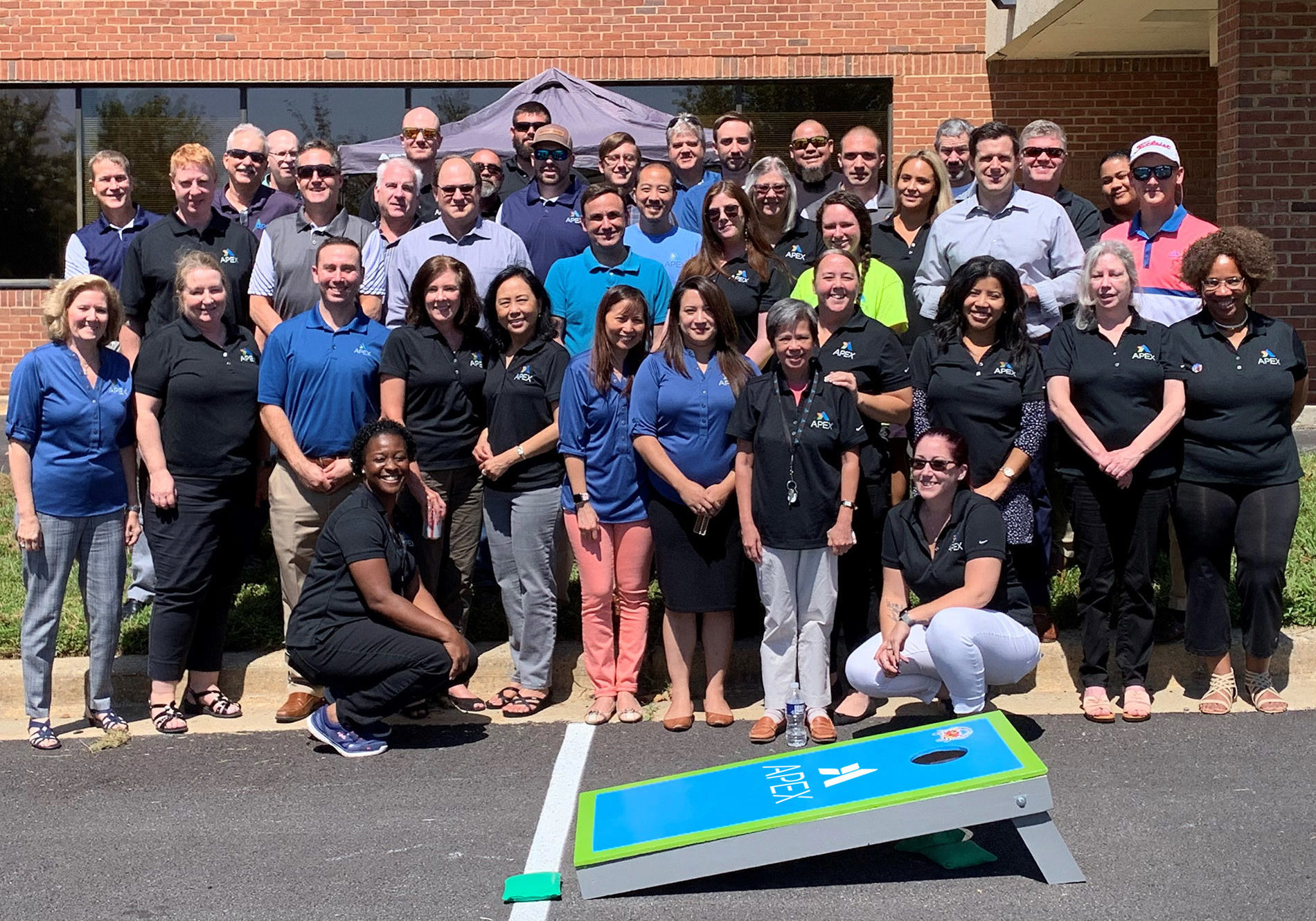
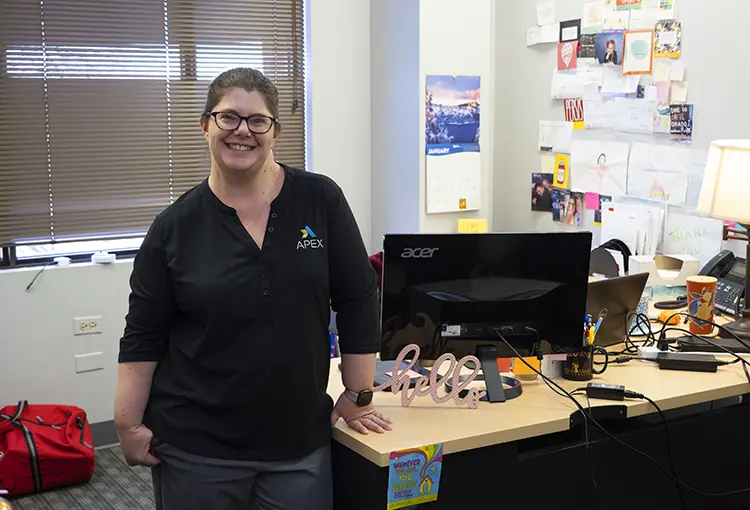
Putting people first isn’t just a soundbite, but rather our commitment to maintaining a culture that our leaders and staff members value, embrace, and protect. We commit ourselves to an environment that facilitates growth, opportunity, and comfort for everyone. This, along with operating safely, taking ownership of our work, being accountable to one another, and delivering exceptional value to our clients, is how we strive to live and operate as a firm, every day.
Wellness Coach, a digital platform designed to empower employees to achieve work-life balance through a variety of tools and courses, is offered to all Apex employees at no cost. We conduct annual wellness challenges to encourage our team to focus on areas such as fitness, meditation, and emotional well‑being.
At Apex, everything starts with the talent, capacity, and commitment of our people, and as such we remain steadfast in maintaining an environment and culture that encourages and enables our employees to realize their best selves.
Our Approach
Agility: We pride ourselves on moving quickly without sacrificing quality—combining proven methods with innovative approaches to consistently deliver reliable results—all at a competitive price.
Expertise: From professional engineers licensed in every state of the US and scientific experts to certified professionals and seasoned field resources, Apex has the best talent in the industry. In fact, our award-winning teams have been nationally-recognized for their dedication and performance.
Excellence: Because we understand that every client, every project, every site, every regulatory requirement is different and tailor our approach accordingly, we exceed expectations, always striving to set the bar even higher.
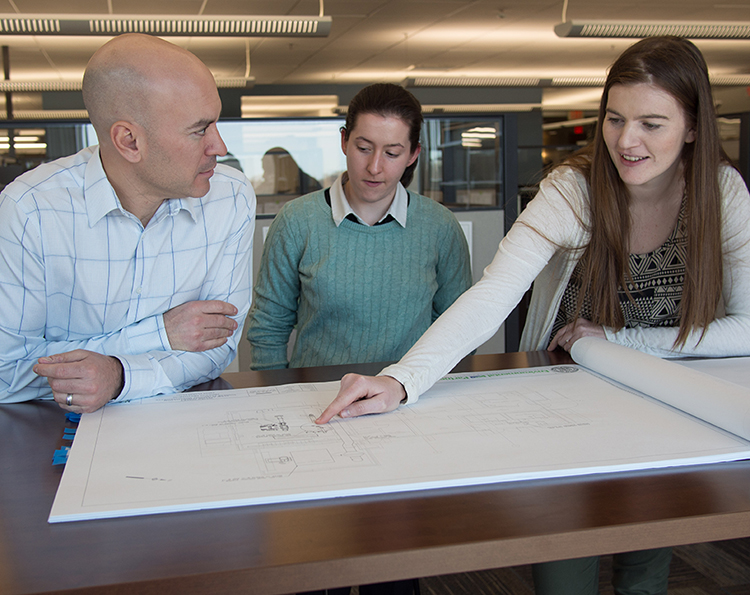
Employee Networks

Employee Networks are employer-sponsored networks or groups of employees that form based on a shared characteristic or background. These groups allow employees with commonalities to meet, support each other, and produce a particular outcome that can help improve the business and job satisfaction. Voluntarily led by employees, these groups advocate for themselves. However, in addition to fostering their own professional development, they often become a valuable resource to employers by providing information about a group’s identities and needs, and by performing community outreach, opening new networks for recruiting, supporting business objectives, and serving as a visible sign of an employers’ commitment to a diverse and inclusive workplace. They also serve as an empowering and safe avenue for employees to express themselves and seek support within an organization.
Apex currently has seven active Employee Networks and is looking for sponsors internally to establish new Employee Networks:
- Administrative Community—offers a support network for those in administrative roles at Apex, their champions, and advocates, or for those who are interested in connecting further with Apex’s administrative community.
- BIPOC—fosters inclusivity and professional growth, amplifying voices and advocating for positive workplace changes to empower BIPOC employees and create a thriving, diverse organization.
- Emerging Professionals—for those who are at earlier stages in their professional careers (regardless of age) and those who want to provide support and mentorship to this community of employees.
- Mapping Professionals—for employees who work in this discipline, want to learn more about GIS/CAD, and are supportive of a community of practice at Apex.
- Pride—for those who wish to provide and promote LGBTQIA2S+ visibility among staff and management related to current workplace and social issues that affect the LGBTQIA2S+ community.
- Wellness Alliance—for all who want to help remove the stigma around mental health and provide resources and support for optimal mental health for Apex employees.
- Women’s Leadership Alliance—for individuals who want to support and learn more about empowering women to grow personally and professional at Apex.
Grow With Us
Exciting challenges and growth opportunities lie ahead.
Apply now and come grow with us!

